The first ever bullet train from Hong Kong to China departed Sunday, as the city’s controversial high-speed rail link opened to the public amid fears greater integration with the mainland could lead to ever more encroachment by Beijing in semi-autonomous Hong Kong’s affairs.
Thousands of journalists, tourists and train enthusiasts queued for hours to become the first passengers to travel from West Kowloon Station – located in central Hong Kong – to the Chinese city of Guangzhou aboard the new $10 billion rail link.
The 26 kilometer (16 mile) railway links Hong Kong up to China’s high-speed rail network, currently the world’s largest, allowing passengers to travel from the city to Shanghai and Beijing.
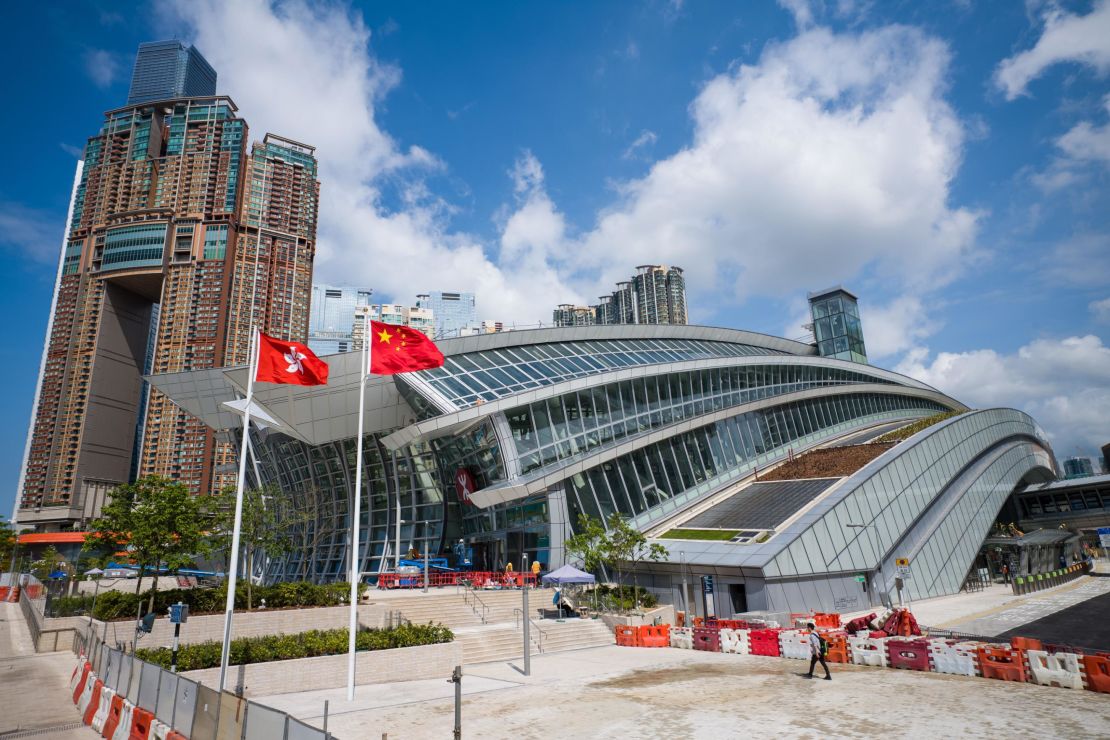
Under a joint checkpoint arrangement, the station is divided into Hong Kong and Chinese port areas, with the latter falling under the direct jurisdiction of Beijing. For this to work, the Hong Kong government leased part of the station – including the immigration checkpoint, waiting lounge, and platforms – to China for a token annual fee of around $128.
This means that although the West Kowloon station is located in central Hong Kong, part of it is governed by Chinese law and patrolled by mainland police. According to the agreement, the Chinese authorities will have the power to arrest individuals inside the station, or even transfer them to the mainland.
On the platform, technically part of China, passengers took photos and selfies as they waited for the Vibrant Express to whisk them northwards. At Shenzhen North station, the terminus for some of the short-haul trains for Hong Kong, there was a similar scene as tourists lined up outside the boarding gates bound for the city.
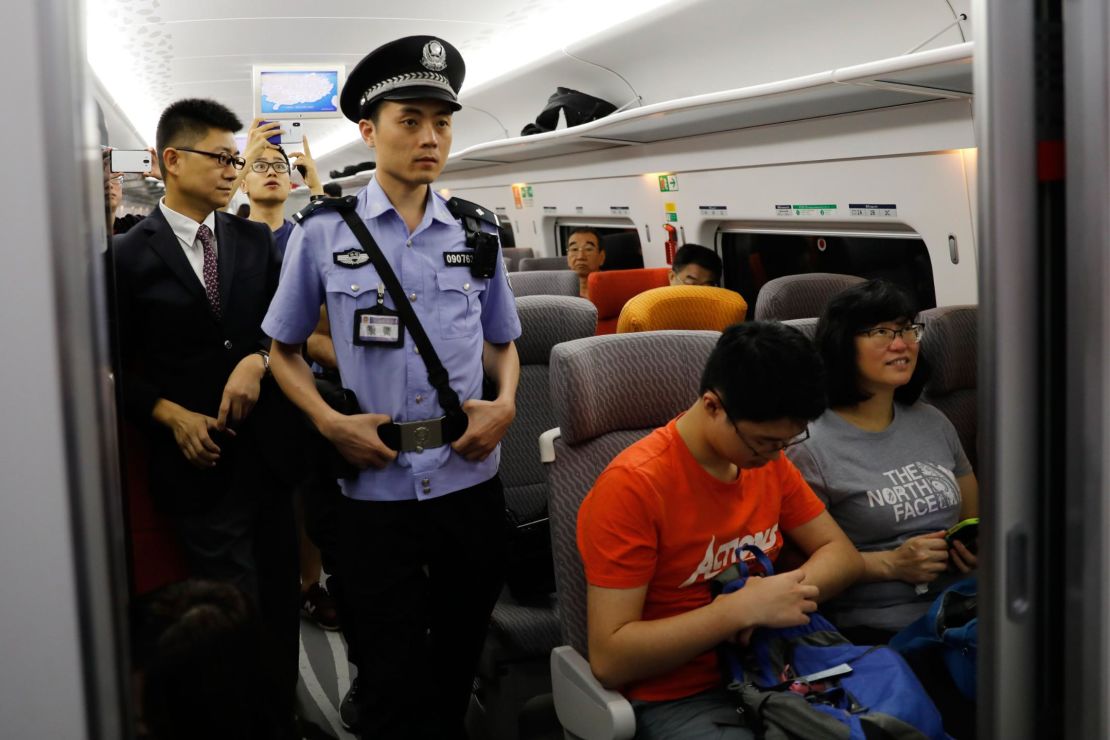
Controversial scheme
The joint checkpoint arrangement – the first time the authorities in Beijing have had direct control over Hong Kong since it was ceded to the British in 1841 – has been hugely controversial in the city. Many fear it could be the start of further erosion of Hong Kong’s semi-autonomous legal and political systems.
The case of several Hong Kong booksellers, two of whom were allegedly abducted by Chinese agents from Hong Kong and Thailand respectively, hangs large over the project. Critics fear that if Chinese police are able to operate in the city, this will give them a base from which to go after critics of the central government.
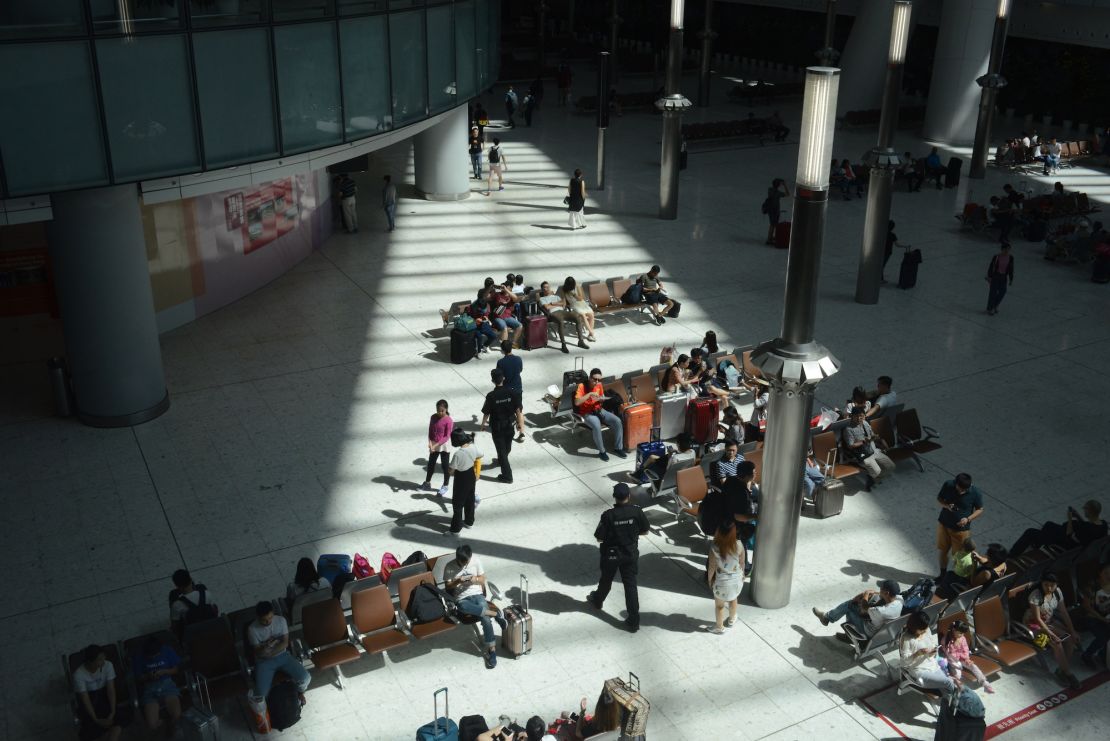
“The co-location arrangement cedes part of Hong Kong and applies mainland laws in those areas,” said opposition lawmaker Gary Fan at a small rally Saturday, where around a dozen protesters gathered outside the extravagant railway terminal to criticize the city’s leader, Carrie Lam, for selling out to China.
“To many Hong Kong people, this has damaged ‘One Country, Two Systems’ and the rule of law,” Fan added, referring to the principle by which Hong Kong maintained some of its freedoms when sovereignty over it was passed from London to Beijing.
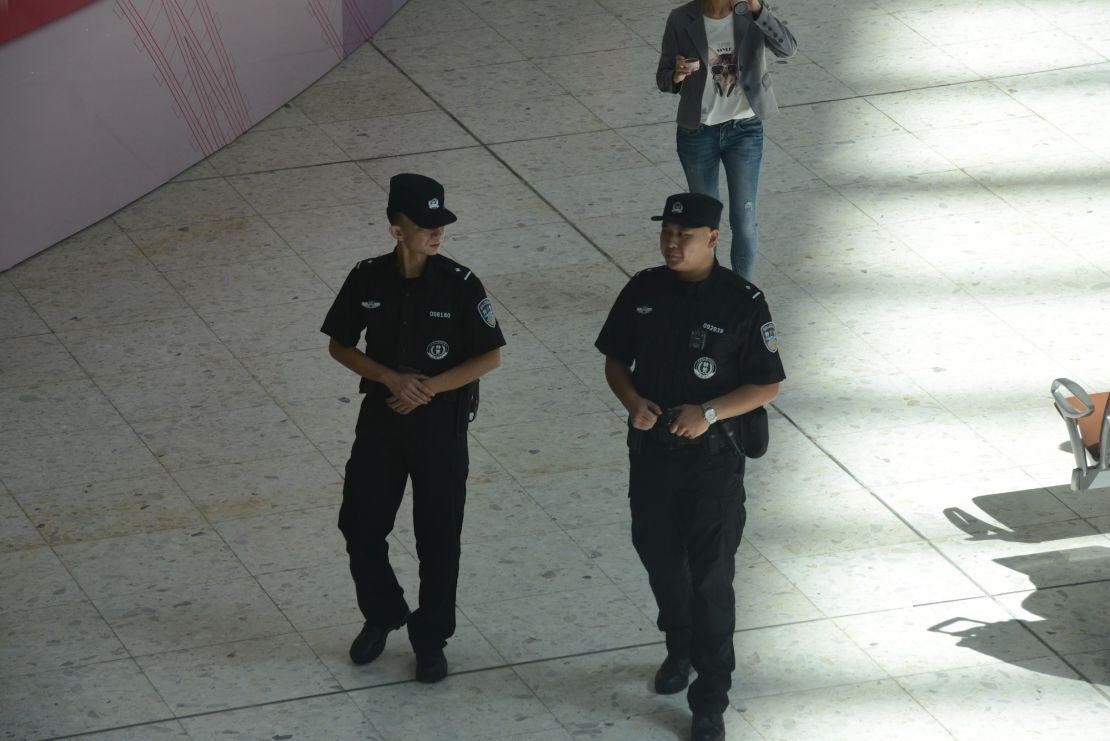
John Tong, a Hong Kong librarian who was on one of the first trains to China from West Kowloon station, said it felt “really strange” to see Chinese police and Hong Kong officials operating side by side.
“Perhaps this is a sign of greater integration between Hong Kong and China,” he said. “But I am not too worried, because people who do not visit China will not take the high-speed rail anyway.”
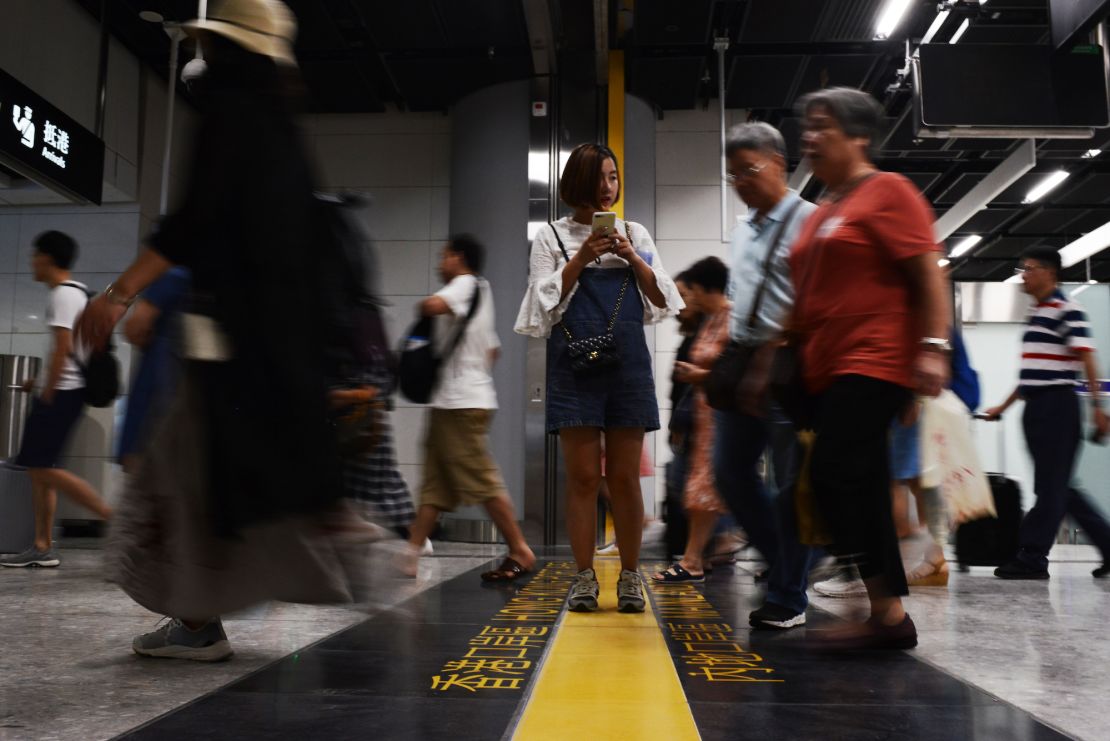
Greater Bay Area
For the Hong Kong government, integration is precisely the point, they envision the West Kowloon link – along with a collosal road bridge linking Hong Kong with neighboring Macau and the Chinese city of Zhuhai – as helping the city play a key role in the Greater Bay Area.
This is the name of Beijing’s master plan to combine the cities of the Pearl River Delta region – including Hong Kong, Macau, and nine cities in neighbouring Guangdong province – to foster greater economic and technological development to rival the bay areas of San Francisco and Tokyo.
Such integration won’t come easy. The Greater Bay Area would comprise 68 million people and span 56,500 square kilometers in southern China, an area that is currently managed by three governments with three separate borders and three different legal systems.
Xingrui Ma, the governor of Guangdong province, said during a speech at the railway’s opening ceremony that the train was critical in reducing the direct distance between Hong Kong and mainland China.
“The official opening of the rail will bring together Hong Kong, Shenzhen, and Guangzhou into a one-hour living zone,” he said. “It will open up businesses, tourism, visitations to families and friends, and provide convenience and comfort services to the residents between the two lands.”
Hong Chen, traveling from Shenzhen to Hong Kong Sunday, said she also believed the high-speed rail would benefit businesses and create greater opportunities in the Greater Bay Area.
“The high-speed rail is very convenient, and it takes you to the center of Hong Kong,” she said. “This will increase opportunities for businesses because it is so quick for people to cross the border now.”
However, there remained fears that the new project could mean Hong Kong would gradually lose its autonomy and assimilate into the rest of the country.
“It is quite convenient for businesses, but this rail is clearly about further integrating Hong Kong with mainland China,” said Bosco Wong, another Hong Kong passenger on the train.
“I don’t know whether it is really good if we just become another city in the Guangdong province.”



